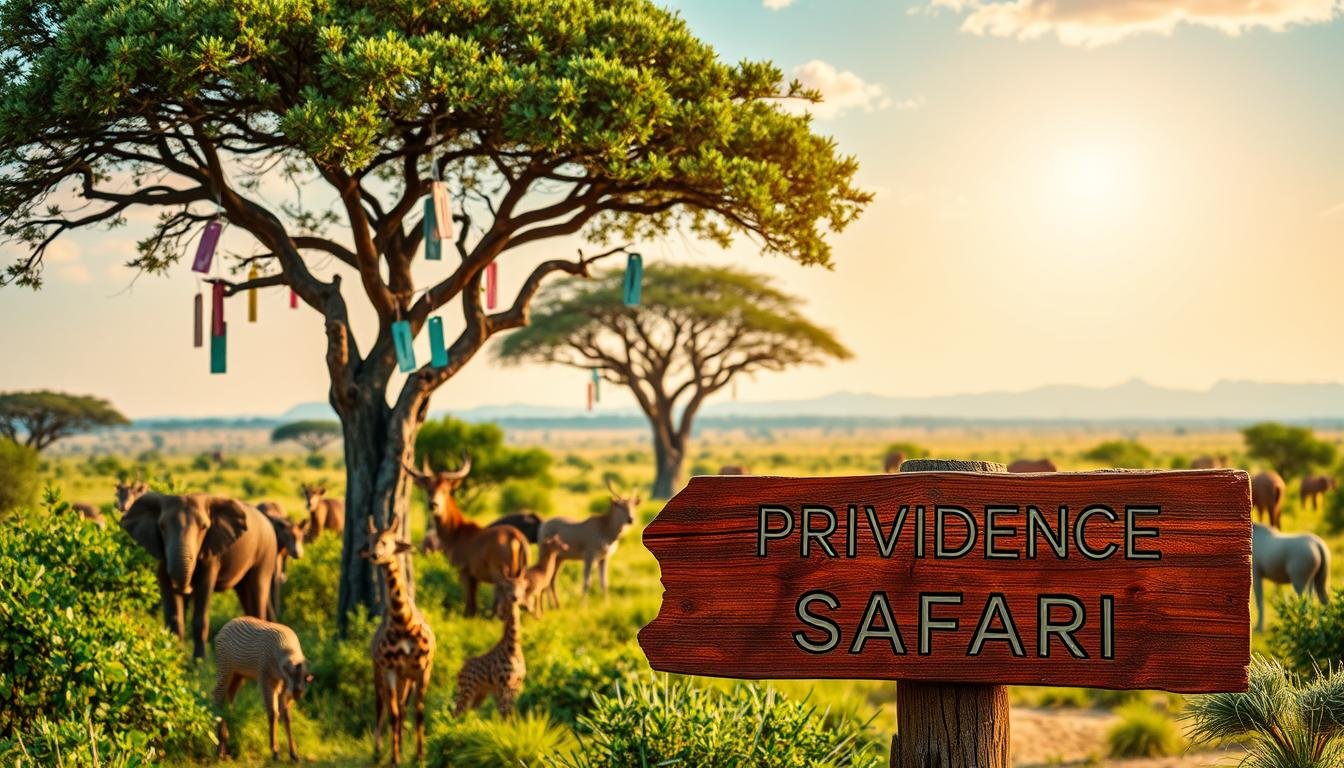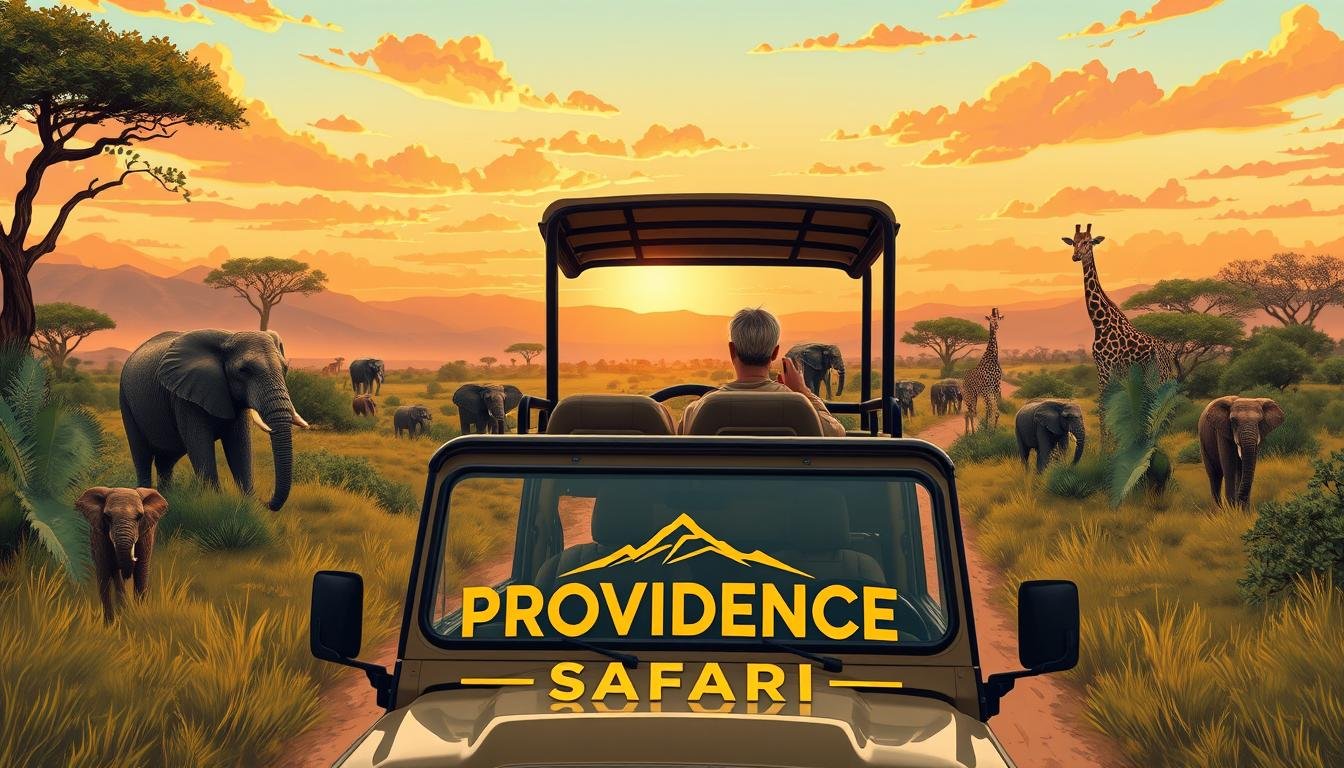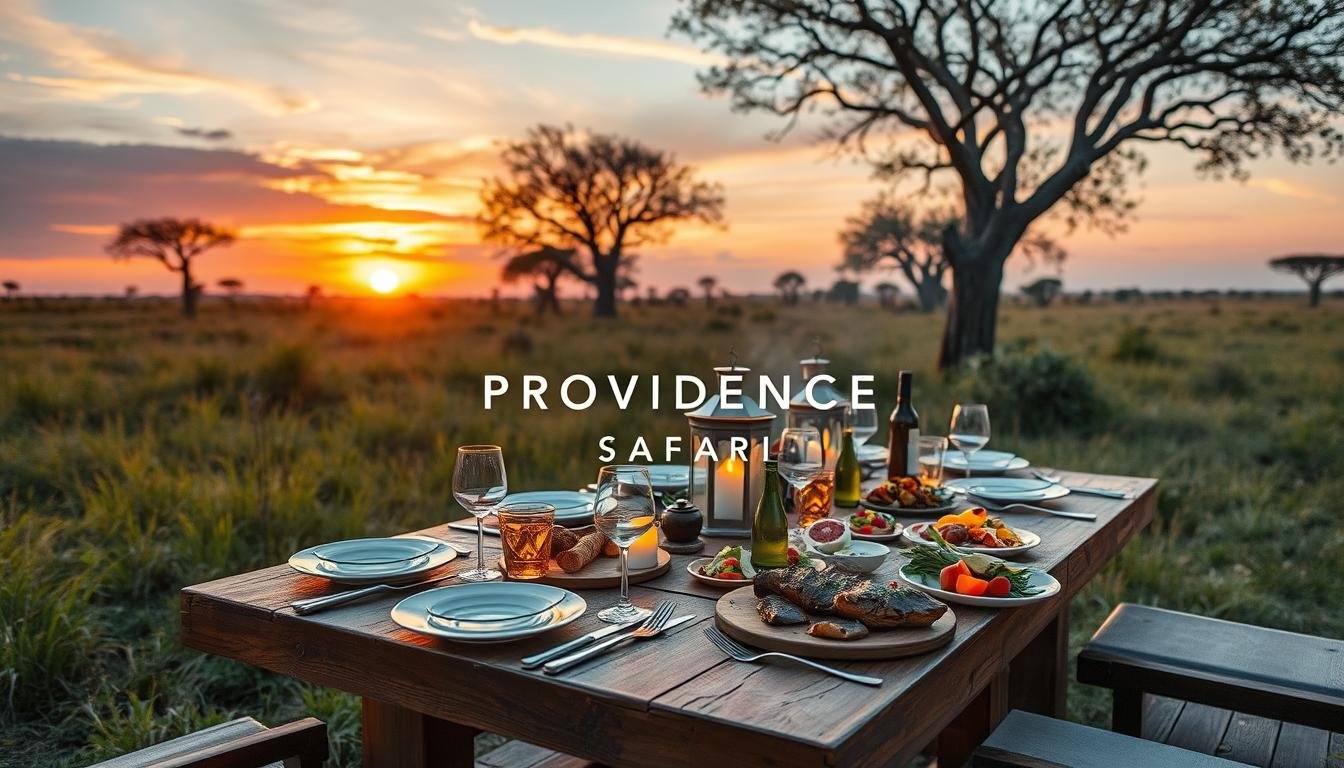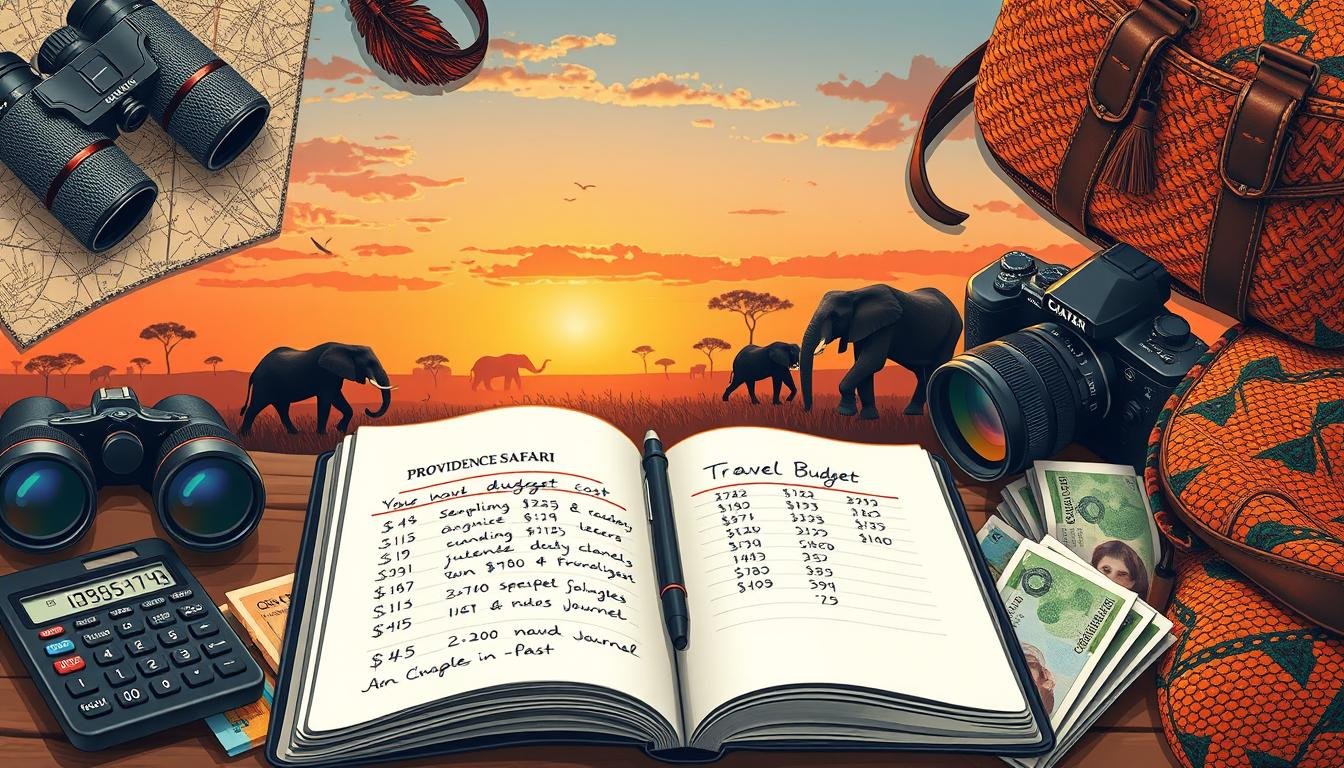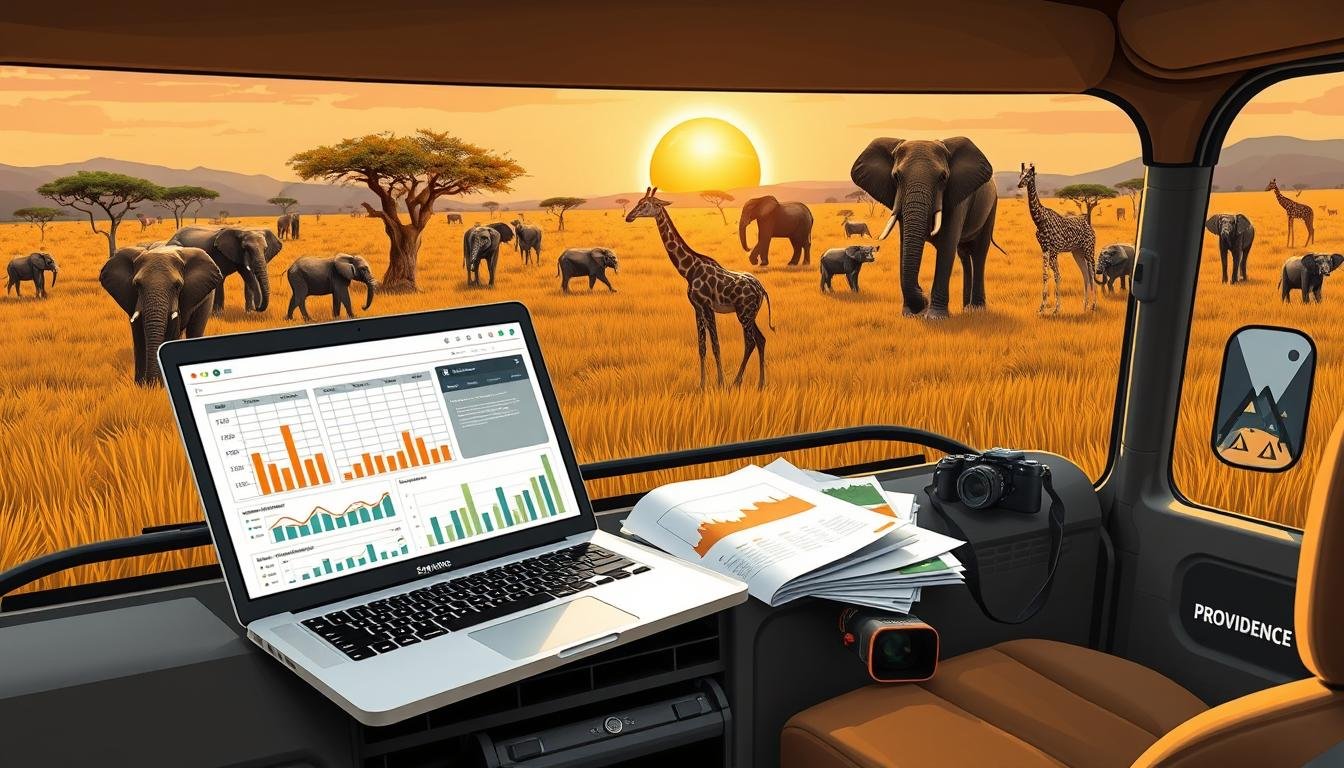How much does a safari cost: Planning our safari adventures raises a big question: “How much does a safari really cost?” The cost of safaris in Africa changes a lot. This guide will cover 2024 prices, explain what affects costs, and offer tips for budgeting your dream safari.
Safari prices vary from affordable to very luxurious. They cater to all kinds of travelers. Whether you want to see wildlife, explore cultures, or both, knowing the prices helps you plan better.
We’ll dive into safari pricing details. We’ll look at what makes costs different. This includes the safari type, travel season, where you stay, and activities. By the end, you’ll know how to plan your 2024 safari and get the best value for your money.
Key Takeaways
- Safari prices can vary widely, ranging from budget-friendly options to luxurious experiences.
- Understanding the key factors that influence safari costs, such as destination, accommodation, and activities, is crucial for budgeting effectively.
- Seasonal price fluctuations and the ability to find discounts can significantly impact the overall cost of a safari.
- Researching and planning your safari well in advance can help you secure the best deals and maximize your value.
- Factoring in additional expenses, such as transportation, meals, and gratuities, is essential for creating a comprehensive safari budget.
Understanding Safari Pricing Basics
Going on a safari adventure means you need to budget well. Costs can change a lot. Let’s look at what affects safari prices.
Factors Influencing Safari Costs
The safari’s location is key to its cost. Safaris in places like Kenya, Tanzania, and South Africa cost more. The trip’s length and your choice of amenities also affect the price.
Types of Safaris and Their Pricing
Knowing the different safaris and their prices is important. Budget-friendly options like group safaris and camping are cheaper. But, luxury private safaris and all-inclusive packages are pricier.
Seasonal Price Variations
When you go on a safari matters too. Prices change with the seasons. The dry months are usually more expensive. But, the rainy season can be cheaper if you don’t mind getting wet.
Understanding these basics helps you plan your safari vacation expenses and budgeting for a safari trip better. With some research and flexibility, you can find a safari that matches your budget and preferences.
Types of Safari Experiences
Planning a safari adventure is exciting and rewarding. But, it can be hard to choose the right option. We’ll look at different safari experiences, from budget-friendly to luxurious. This will help you find the perfect fit for your budget.
Budget Safaris: What to Expect
Budget safaris are great for those on a tight budget. They let you explore the African wilderness without spending a lot. You’ll camp or stay in basic lodges, with group transport and shared activities.
Even though the lodgings are simple, the wildlife is amazing. Budget safaris cost around $150 to $300 per person per day.
Mid-Range Safari Adventures
Mid-range safaris offer a good mix of comfort and value. They include private or small-group game drives and comfortable lodges or tented camps. You’ll also get more personal attention.
Expect to spend between $300 to $500 per person per day. This is a great choice for those who want a bit more comfort.
Luxury Safari Options
Luxury safaris are the top choice for those who want the best. They offer private game drives, gourmet meals, and fancy accommodations. Prices can go from $500 to $1,000 or more per person per day.
Even though they’re pricey, the memories and experiences are worth it. No matter your budget, choose wisely based on your preferences and what you want to experience in the African wilderness.
The Cost of Accommodation in Safaris
Planning an African safari means thinking about the cost of where you’ll stay. The lodging you pick can really affect your safari’s price. We’ll look at the price gaps between lodges and camps, the perks of all-inclusive deals, and some special places to stay and their costs.
Lodges vs. Camps: Price Differences
Lodges offer a fancy and cozy stay with extras like private balconies and gourmet food. Prices for lodges can be $200 to $1,000 per person per night, based on location and services. Safari camps, being simpler and more into nature, cost $100 to $500 per person per night. This makes camps a good choice for those watching their budget.
All-Inclusive Safari Packages
Many safari companies have all-inclusive deals. These packages include your stay, food, activities, and transport. They can save you money and make planning easier. Prices for these packages vary from $300 to $1,500 per person per night, depending on the luxury level and what’s included.
Unique Lodging Options and Their Costs
- Tree houses: These offer a special view and cost $400 to $800 per person per night.
- Mobile camps: These move to follow the animals and cost $200 to $600 per person per night.
- Luxury tented camps: They mix the feel of a camp with lodge comforts, priced at $300 to $1,000 per person per night.
Knowing about different places to stay and their prices is key for planning your African safari. By thinking about what you want and need, you can find a stay that’s both luxurious and affordable. This way, you can have a memorable safari that fits your budget.
Transportation Costs During Safari
Planning a safari adventure means thinking about transportation costs. These costs add up fast. They cover getting to the safari and moving around once you’re there. These expenses can really affect your budget for the trip.
Intra-Safari Transport Options
Game drives are key to any safari. They come with their own costs. You might pay for each drive or it could be part of your package. Prices vary from $50 to $150 per drive, based on location, length, and vehicle type.
Transfers to and from Airports
Getting to the safari is as important as the trip itself. Many operators offer airport transfers. These can cost between $30 to $100 per person. Prices depend on distance and transport type, like shared shuttles or private cars.
Rental Vehicles: Cost Considerations
Self-driving offers flexibility. Renting a vehicle is a good choice. Costs range from $50 to $200 daily, based on vehicle size and features. Remember to add fuel, insurance, and drop-off fees to your budget.
Knowing about safari transportation costs helps plan your budget. This way, you can enjoy a smooth and memorable safari trip.
Safari Activities and Their Costs
When planning your safari vacation expenses, it’s key to think about the different activities and their costs. From exciting game drives to deep guided walking safaris, each one can change your total costs of African safaris.
Game Drives: Pricing and Frequency
Game drives are the heart of any safari trip. They usually come with your safari package. You’ll go on these guided tours twice a day, in the morning and late afternoon. The cost and how often you go can change based on the safari company and where you are.
On average, game drives cost between $50 to $150 per person. Longer or more special drives will cost more.
Guided Walking Safaris: Is It Worth It?
Guided walking safaris offer a closer and more detailed safari experience. You get to walk through the African wilderness with a guide. These walks can cost from $75 to $200 per person, based on how long and special they are.
Even though these walks are pricier, they give a special view of the local plants and animals.
Additional Activities: What to Budget For
- Hot air balloon rides: $350 to $500 per person
- Cultural visits and village tours: $30 to $100 per person
- River cruises or boat safaris: $50 to $150 per person
- Spa treatments or wellness activities: $50 to $200 per person
Keep in mind, the costs of these extra activities can add up fast. So, make sure to include them in your safari vacation expenses when planning your African trip.
Meals and Dining on Safari
Planning a safari trip means thinking about meals and dining costs. Knowing what meals are included and how to save on food can help. This way, you can enjoy your trip without worrying about money.
Included Meals in Safari Packages
Most safari packages include meals like breakfast, lunch, and dinner. The type of safari you choose affects how many meals are included. Budget safaris offer basic meals, while more expensive ones provide a wider range of dining options.
Dining Options Outside Package Deals
If your safari package doesn’t cover all meals, you can try different places to eat. You might find restaurants at your lodge or local spots. Looking into these options can help you plan your food budget.
Tips for Managing Food Costs
- Choose all-inclusive safari packages to save money and avoid surprise costs.
- Bring snacks and non-perishable items to add to your meals and cut down on extra spending.
- Learn about local currency exchange rates to save money when eating out.
- Stay on track with your food budget to keep your safari expenses in check.
Understanding what meals are included and how to save can help you manage your safari’s food costs. This way, you can enjoy your trip without worrying about money.
Booking and Planning Your Safari
Planning a safari can be thrilling but also overwhelming. Finding good deals and staying within your budget is key. With the right tips, you can get great safari package costs and enjoy your trip fully. Let’s look at some ways to book and plan your dream safari.
Best Times to Book for Price Advantages
When you book your safari can affect the cost. Booking early usually means better prices. Try to book 6-12 months ahead to get discounts and secure the best spots.
How to Find Discounts and Promotions
- Sign up for email newsletters from safari providers and travel agencies to stay informed about their latest deals and promotions.
- Consider traveling during the shoulder or off-peak seasons, when demand is lower and prices are more competitive.
- Look for package deals that bundle accommodations, transportation, and activities, as these can often be more cost-effective than booking each component separately.
- Check for special offers, such as group discounts or family packages, that can help you save on the how much does a safari cost.
Working with Travel Agents vs. DIY Planning
Planning your safari can be done with a travel agent or on your own. Each method has its own benefits and drawbacks:
| Travel Agents | DIY Planning |
|---|---|
|
|
Choosing between a travel agent and DIY planning depends on your preferences, budget, and desired customization. Weigh the pros and cons to decide what’s best for your safari.
Hidden Costs of Safaris
Planning an African safari means more than just the trip’s base cost. There are hidden expenses that can surprise even the most prepared travelers. These include unexpected fees and essential insurance needs. Knowing these costs helps you plan a complete safari travel budget.
Tips for Avoiding Surprise Expenses
One common hidden cost is various fees and charges during your trip. These can include park entrance fees, activity surcharges, and facility use charges. To avoid these, research all possible fees for your safari destination and activities.
Essential Insurance Considerations
Getting the right travel insurance is crucial for any safari. Medical emergencies, trip cancellations, and lost or stolen items can happen. Make sure your insurance covers the unique risks of a safari vacation.
Gratuities: What to Expect and Budget
Tipping is common in the safari industry. Not budgeting for tips can lead to unexpected expenses. Guides, drivers, camp staff, and porters all expect tips. Research tipping amounts for your destination and include them in your budget.
Knowing about these hidden costs helps plan a memorable and affordable African safari. With some preparation, you can enjoy the safari’s incredible sights and experiences without financial worry.
Currency and Payment Methods on Safari
Planning a safari in Africa means knowing about local money and how to pay. Getting the financial side right makes your trip better.
Understanding Local Currency
Africa’s safaris use different money, like the South African Rand and Kenyan Shilling. Knowing your safari’s money and its value is key before you go.
Payment Methods Accepted on Safari
- Cash: Many places on safari like cash for small things and extras.
- Credit/Debit Cards: Visa and Mastercard work at big safari spots and for booking.
- Mobile Payments: In some places, like M-Pesa, are getting used more for buying things.
Currency Exchange Tips and Considerations
Here are tips for exchanging money:
- Get local money before you go, from your bank or at the airport.
- Don’t exchange money at your hotel or lodge, as rates are bad.
- Use ATMs for cash, as they give better rates than currency exchanges.
- Tell your bank and credit card about your trip to avoid problems.
Knowing about money, payment options, and smart exchange can help you save. This way, you can enjoy your African safari more.
Budgeting for Your Safari Trip
Going on a safari is a dream for many. But, it’s key to plan your budget well. A good budget plan helps you enjoy your safari without spending too much. Let’s look at how to make a budget and find ways to save money on your safari.
Creating a Comprehensive Budget Plan
First, list all the costs for your safari. This includes where you’ll stay, how you’ll get around, activities, food, and any extra fees. Look up prices for each part and remember to check for deals or seasonal changes.
Cost-Saving Tips for Safari Enthusiasts
- Book your safari early to get discounts.
- Go during the off-peak season for cheaper prices.
- Choose a shared safari to split costs with others.
- Look for affordable places to stay like campgrounds or simple lodges.
- Bring your own snacks and drinks to save on food.
Emergency Fund Considerations
Don’t forget to save for emergencies. Things like medical issues or flight delays can cost a lot. Try to save 10-15% of your total budget for unexpected things. This way, your safari will be worry-free and fun.
With these tips and a detailed budget, you can have your dream safari. You’ll manage your budgeting for a safari trip and safari vacation expenses well. A bit of planning lets you enjoy your safari fully without worrying about money.
Frequently Asked Questions About Safari Costs
Planning your safari adventure? You might wonder about the costs involved. Let’s tackle some common questions to help you budget wisely for your safari.
Common Queries Regarding Prices
Many ask, “How much does a safari cost?” The price varies based on the safari type, duration, and luxury level. Safari prices range from a few hundred to several thousand dollars per person.
Mistakes to Avoid When Planning Budget
- Underestimating hidden costs like tips, visa fees, and travel insurance
- Failing to research seasonal price fluctuations and booking during peak seasons
- Not considering the costs of optional activities and add-ons beyond the base safari package
- Neglecting to factor in transportation costs to and from the safari location
How to Handle Price Fluctuations
Safari prices can change due to many factors. To deal with these changes, we suggest:
- Staying informed about current market trends and pricing
- Booking your safari well in advance to lock in rates
- Considering travel insurance to protect against unexpected price changes
- Maintaining a flexible mindset and being open to alternative safari options if your initial choice becomes too expensive
By understanding these cost-related questions and planning ahead, you can find a how much does a safari cost that fits your budget. This way, you’ll have an unforgettable safari experience.
Final Thoughts on Safari Expenses
Exploring the costs of a safari shows us that there’s no single answer. The price can vary a lot, depending on what you want and how much you can spend. The goal is to find a balance that fits your budget and dreams.
Summary of Key Cost Factors
Many things affect the cost of a safari. This includes the type of safari, where you stay, and what activities you do. Knowing these can help us plan our budget better.
Making the Most of Our Safari Budget
Working with a trusted company like Altezza Travel can help us stretch our budget. They offer great itineraries, reliable vehicles, and quality places to stay. This way, we get the best value for our money.
Encouraging Unique Experiences Without Overspending
Remember, the real value of a safari is the memories and experiences it gives us. By choosing what matters most to us, we can have a safari that’s both memorable and affordable. Tanzania’s beauty, wildlife, and culture are worth every penny.

